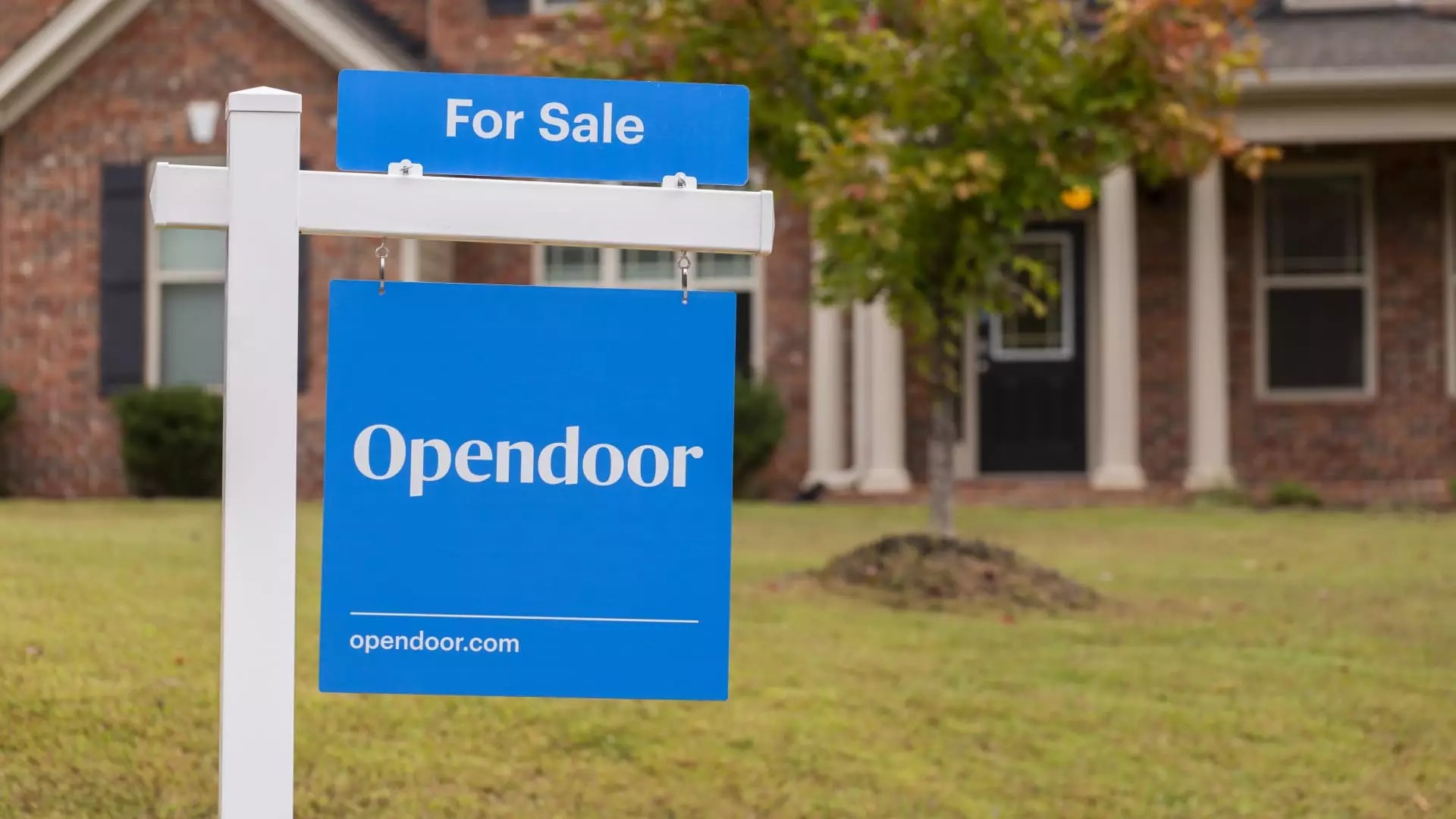Opendoor’s recent management shakeup and the turbulence surrounding its stock may seem like a fleeting opportunity for speculative investors to profit from a battered tech-driven real estate firm. However, a deeper analysis reveals that this is less a story of resilient growth than a reflection of misguided optimism and dangerous market trends. Carrie Wheeler’s resignation, framed publicly as a move to facilitate leadership transition, is symptomatic of a company desperately trying to mask fundamental weaknesses with emotionally driven rallying cries. Retail investors, often enamored with quick gains, need to scrutinize whether Opendoor’s recent gains represent a genuine turnaround or merely a temporary spike fueled by speculative fervor.
The company’s recent earnings report painted a bleak picture: declining home acquisitions, reduced marketing spend, and a clear halt in growth momentum. The projected acquisition of only 1,200 homes in the upcoming quarter signals a strategic retreat rather than a comeback. It is a stark reminder that the so-called “technology-driven” business model, which hinges on flipping homes at scale, is inherently vulnerable to macroeconomic shocks—namely rising interest rates and inflation—that drastically impact mortgage affordability and affordability of debt. Investors betting on a quick recovery overlook the critical dependence of Opendoor’s business on an unstable interest rate environment, a factor that could prolong its recovery or deepen its decline.
Speculation Versus Reality: The Role of Market Hype
The sudden surge in Opendoor’s stock—over sixfold from its historic lows—largely stems from the influence of high-profile hedge fund managers like Eric Jackson and venture capitalists like Keith Rabois. Their aggressive promotion on social media platforms like X has created an illusion that the company is on the cusp of a major comeback. Jackson’s enthusiastic claim that he expects the stock to become a “100-bagger” over the coming years is a textbook example of reckless optimism that can mislead less experienced investors.
This hype feeds into a broader problem: the erosion of rational valuation in the current market climate. Over the past decade, SPACs and tech stocks alike have been propped up by low interest rates, creating an environment where speculation often outpaces fundamentals. When macroeconomic conditions shifted—interest rates rising, inflation taking hold, and real estate markets cooling—businesses like Opendoor exposed their vulnerabilities. It’s an urgent lesson that in volatile economic terrains, companies reliant on aggressive growth strategies, especially those like Opendoor that depend heavily on borrowing and refinancing, are in a perilous position.
The reluctance of the company’s founders and original leadership to support Wheeler’s tenure is telling. It reflects a deeper internal discord about strategy and leadership, one that investors tend to overlook as the stock climbs. Swift leadership changes, without a solid plan rooted in financial discipline and sustainable growth, risk merely postponing inevitable reckoning.
A Critical View of the Future: Caution and Skepticism Are Mandatory
In a more centrist view, it is imperative to recognize that Opendoor’s troubles are not merely the result of short-term macroeconomic headwinds but also flawed strategic choices. The company’s reliance on rapid home flipping, high leverage, and aggressive marketing has proven unsustainable in an environment where borrowing costs spike and housing market fundamentals weaken.
The appointment of Shrisha Radhakrishna as interim CEO indicates recognition that new leadership is needed to steer through the storm. Yet, without fundamental changes—rigid financial discipline, realistic growth targets, and a careful approach to risk management—Opendoor might remain a speculative gamble rather than a viable long-term investment. The rising market cap, now just around $2.5 billion, still reflects a substantial discount from its peak valuation, emphasizing that investors should approach with caution, not greed.
The broader takeaway is that markets are not always rational, but they are efficient in punishing overleveraged companies and overly optimistic narratives. For those with a centrist-liberal economic stance, it’s a reminder that sustainable growth comes from prudent risk management, innovation rooted in realism, and leadership that prioritizes stability over hype. Chasing after quick gains in high-risk sectors like tech-powered real estate is a gamble—one that could cost many their financial stability in the ensuing fallout of market corrections and economic downturns.

